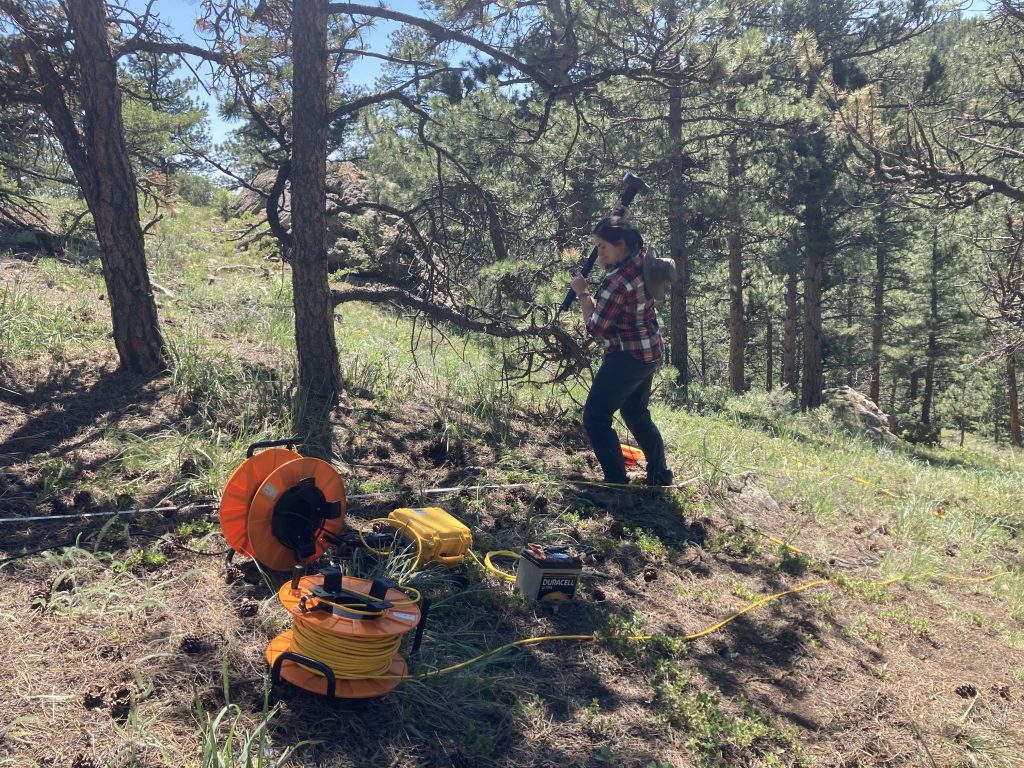
Samantha Motz using a sledgehammer to hit a metal plate to generate seismic activity to be picked up by geophones that are placed along the tape measure on the ground. (Photo/Dr. Kamini Singha) 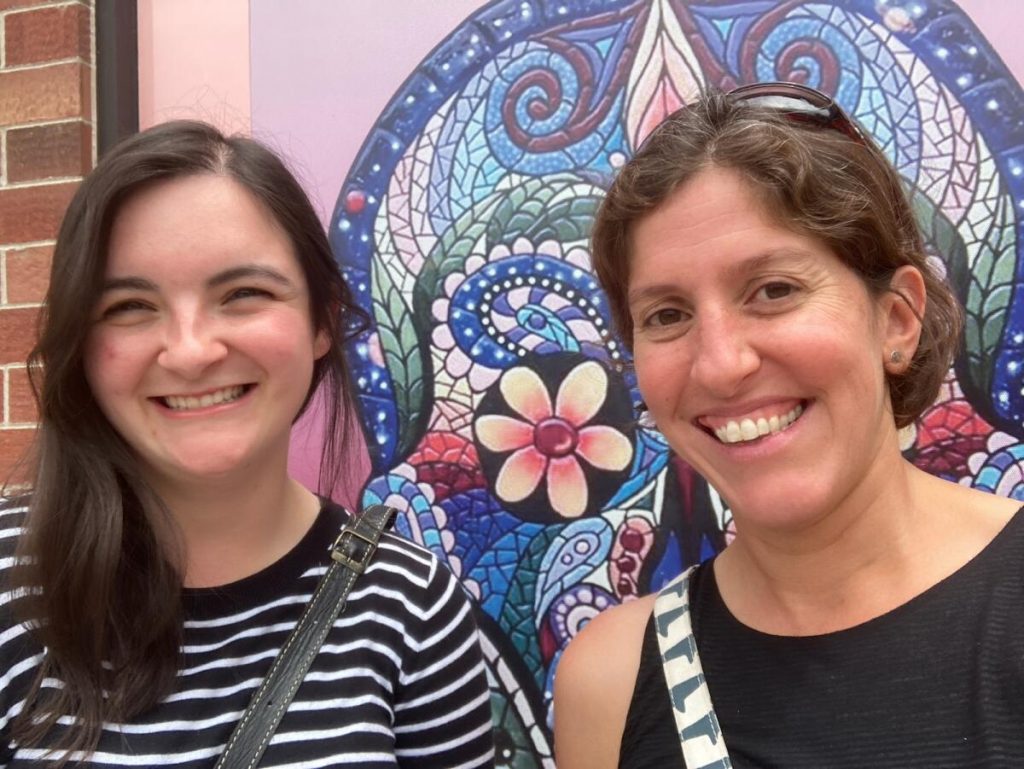
Dr. Kamini Singha and Samantha Motz in front of Xicamiti La Taquería Bistro in Golden, CO. (Photo/Dr. Kamini Singha) 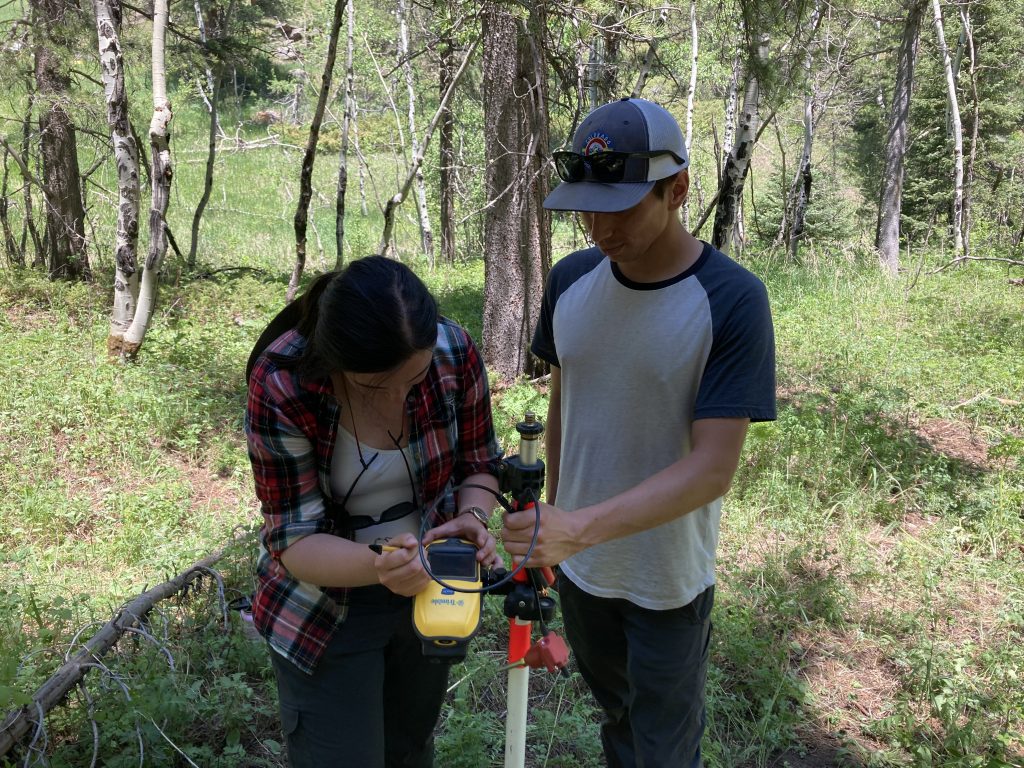
Samantha Motz showing Kenny Swift Bird a feature on the Trimble Geo 7X GPS. (Photo/Dr. Kamini Singha) 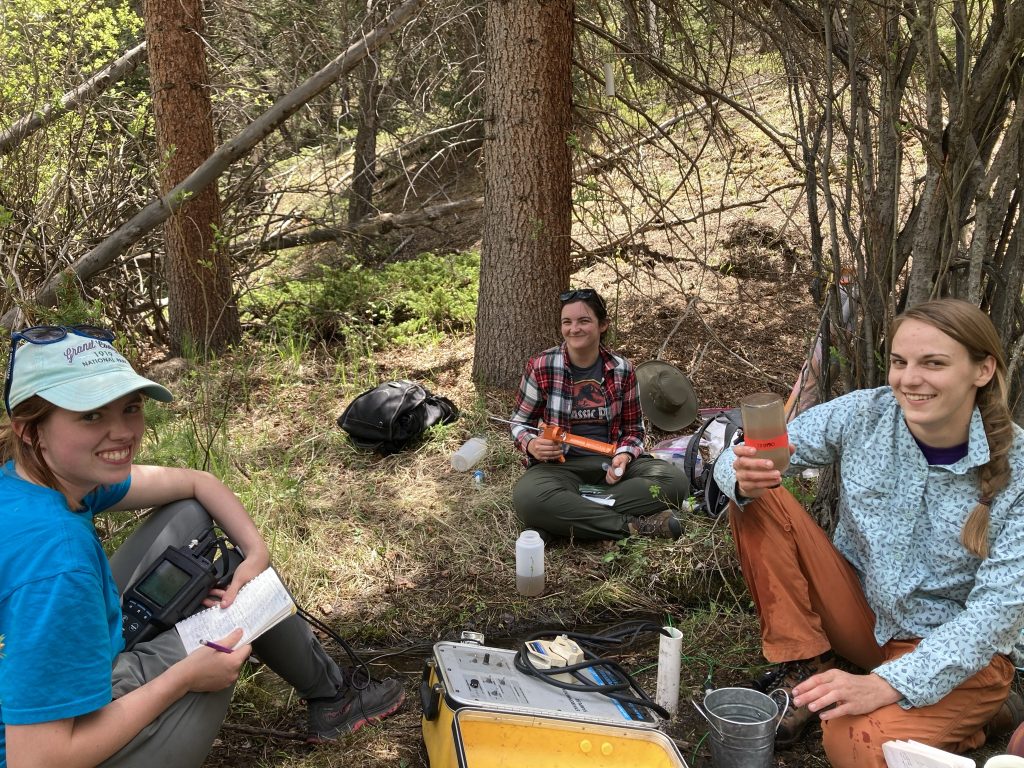
Preparing and collecting water samples in the Manitou Experimental Forest. From left to right: Sadie Jonson, Samantha Motz, and Sara Warix. Taken at the second site in the Hotel Gulch Watershed. (Photo/Dr. Kamini Singha) 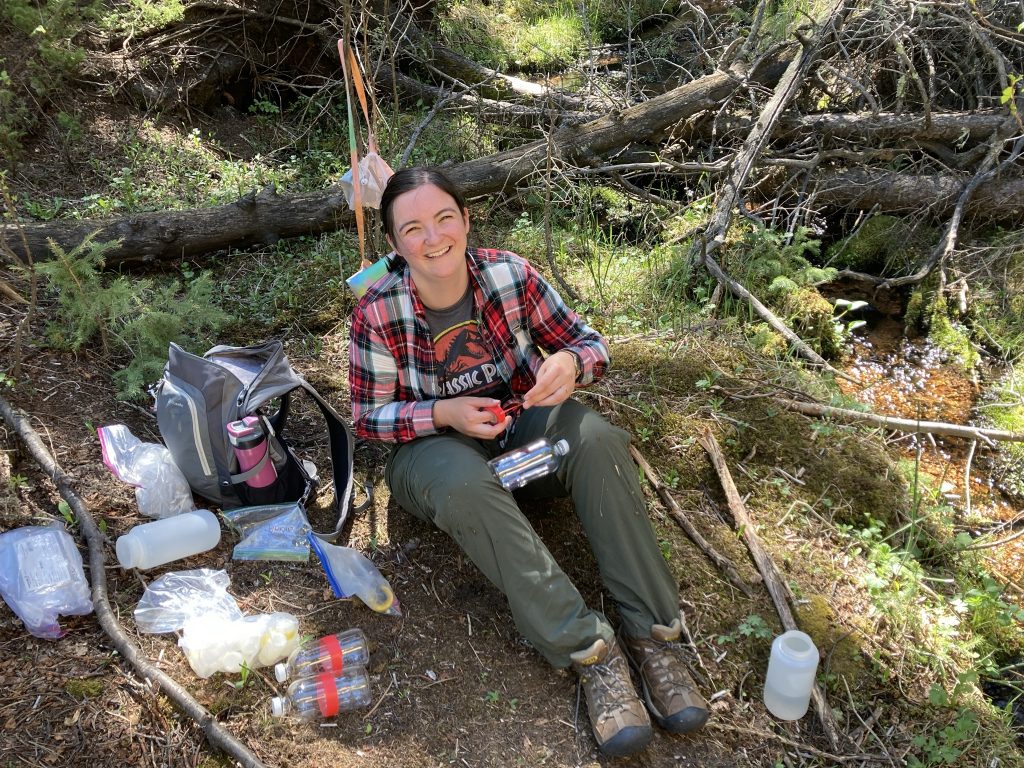
Samantha Motz labeling the bottles to collect water samples with. Taken at the first of the sites in Hotel Gulch Watershed. (Photo/Dr. Kamini Singha)
This summer we’re introducing interns in the RESESS and Geo-Launchpad programs to shine a spotlight on the research projects they are completing throughout these 11-week internships and on their interests in geoscience.
Samantha Motz is a third-year student at the Georgia Institute of Technology studying Earth and Atmospheric Sciences. Samantha has always been fascinated in nature and grew up playing in the forest behind her apartment. Despite recognizing this passion for nature, Samantha initially decided to study art. She went to college for graphic design, but felt that art was not providing her with the larger purpose in life that she desired. From art, she went into business, then to art history, in search of her passion. Finally, she took an introductory geology course with Dr. Pamela Gore, coauthor of the Roadside Geology of Georgia book and vice president of the Atlanta Geological Society. Dr. Gore stopped Samantha after class one day and told her that she should get into geology—which she eventually did, about one year later. She applied to the RESESS program in order to obtain more research experience.
Samantha is working with Dr. Kamini Singha from the Colorado School of Mines this summer. She and her mentor are examining the influence of topography on the hydrology of the Hotel Gulch Watershed near Manitou Lake in Colorado. The project began by installing groundwater wells with Sara Warix, a PhD student at the Colorado School of Mines. The data collected with these wells will be utilized by Sara Warix for her dissertation, but will also be used by Samantha throughout her project this summer. The main two questions that Samantha aims to explore are “Does a steep slope correlate to instability in discharge and specific conductivity?” and “Does an increasing upstream area correlate to an increasing variability in stream chemistry?” Samantha has been using ArcGIS to examine the topography of the region, completing many calculations to analyze the slope, curvature, and topographic wetness index of the area. She will soon tie in data from the stilling wells in the stream banks, including specific conductivity and discharge derived from water levels at the eight different sites and compare the datasets for trends pertaining to her research questions. The Hotel Gulch Watershed is in a semi-arid climate, which makes it sensitive to climate change. Samantha’s research will allow us to better understand how local features impact this water system, and the implications for climate change in the region.
Q&A
- What has been your favorite part of the RESESS program so far?
I’ve met so many interesting and brilliant people including graduate students at the Colorado School of Mines, who have helped me focus my aspirations of higher education. My research mentor, Kamini Singha, has been amazing. She has become my inspiration—she is an amazing geoscientist. It’s definitely put what it would be like to be a geoscientist into a better perspective.
- What have you gained from your mentorship with Dr. Singha?
She has helped me so much! She has ensured that I have gained plenty of field experience. I now know how to properly swing a sledgehammer. I have learned so many skills, such as ArcGIS and the use of scientific grade GPS devices. In the field, I witnessed the chaos of hardware failure and having to problem solve in the moment. When Dr. Singha came out into the field with us, she continued to question the process and how we could expand on our research. Overall, I have gained a new perspective of what it means to be a geoscientist as well as an amazing connection with someone who will continue to influence my career goals.
- Have you learned about any new topics or research techniques that have really piqued your interest?
I have always enjoyed hydrology, but I don’t think I realized how much I was interested until I worked with hydrologists. I’ve definitely picked up a lot of ArcGIS, which I had never worked with before. Installing groundwater wells, I’ve never done that before. I also got to partake in a geophysics project where they were using geophones to detect seismic waves generated through sledge hammering a metal plate. It was enlightening to experience something so completely different from the hydrology project. The data interpretation process is the next step in my project. I’ve never had the opportunity to analyze an active data source, so I think this is going to be very interesting!
After completing the RESESS internship, Samantha is looking forward to road tripping in Southern France with her husband and the stops they will be making at dormant volcanoes. She is also starting a new event at Georgia Tech this summer to recruit more Earth and atmospheric sciences students in which geology professors will go for hikes with students. In terms of future plans, Samantha’s work with Dr. Singha inspired her to consider obtaining a master’s or doctoral degree in hydrology! For now though, Samantha plans to return to Georgia Tech to complete her bachelor’s degree.
Written by:
- Lucia Bellino, USIP Intern
- Posted: 6 July 2021
- Last updated: 6 July 2021
- Tags: hydrology, internships


